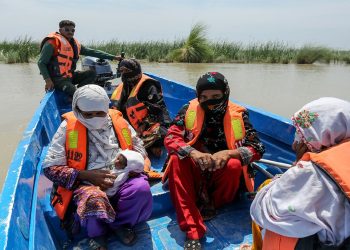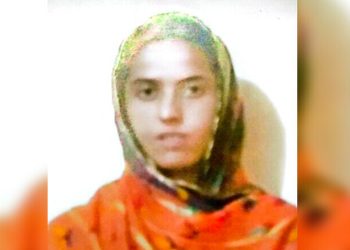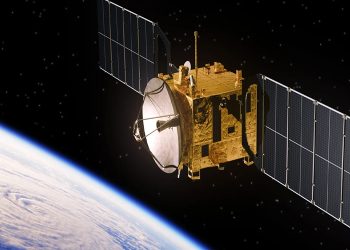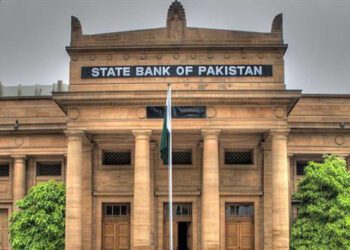Poverty is about not having enough money to meet basic needs including food, clothing, and shelter. The World Bank Organization describes poverty in this way: “Poverty is Hunger”. These are all costs of being poor. Essentially, poverty refers to lacking enough resources to provide the necessities of life such as food, clean water, shelter, and clothing. But in today’s world, that can be extended to include access to health care, education, and even transportation.
Poverty has been one of the biggest problems that Pakistan faces today. According to an analysis, poverty has increased roughly from 30% to 40% during the past decade. It means that 40% of the country’s population is earning their livelihood below the poverty line. Poverty has risen to over 5% in 2020. The World Bank has estimated that poverty in Pakistan has increased from 4.4% to 5.4% in 2020, as over two million people have fallen below poverty line. In Pakistan, 24.3% of population lives below national poverty line in 2015. Using the lower-middle-income poverty rate, WB estimated that poverty ratio in Pakistan stood at 39.3% in 2020-21 and is projected to remain at 39.2% in 2021-22 and might come down to 37.9% by 2022-23.
Moreover, by using upper-middle-income poverty rate, the global financial institution estimated that poverty stood at 78.4% in 2020-21 and it would be standing at 78.3% in 2021-22 and is projected to come down to 77.5% in 2022-23. At 1.86%, Pakistan has the highest population growth rate in the world, largely uneducated populace. About half of Pakistan’s population is illiterate, and 7.26 million children are out of school due to poverty. Environmental problems in Pakistan, such as erosion, use of agrochemicals, deforestation, etc. contribute to rising poverty in Pakistan. Increasing pollution contributes to increased risk of toxicity, and poor industrial standards in the country contribute to rising pollution. The percentage of people under poverty in Pakistan is 31.3%.
The main cause of poverty is corruption. People use the wrong way to get money by using fair and unfair means. Officials waste their time has low efficiency.
Only one relationship that exists in society is money. One has to pay a heavy cost to get his right. Law and order conditions are out of control and institutions are failed to provide justice to the common man. Justice can be bought by money only. But the government is unable to control such types of things. In this whole scenario, some corrupt people have been occupying the properties and the common man is living in miserable conditions.
Another cause of poverty is literacy as the rate is very low. Most people do not have any concept about the current earning sources. Most people are unable to adopt technology for their business needs, that’s why a business does not meet international standards and results in a decrease in revenue which leads the society to poor economic conditions.
Another cause of poverty is privatisation. Government is unable to manage the departments and the country has low backup and amounts of money. So that is why for the requirements of the country, some companies run by the government are sold to foreign investors. The commodities or services provided by the companies are becoming costly. For example, if the government sold a gas plant then prices for gas in-country rise.
Greediness in our society social bonding is gradually becoming thinner and thinner. A race of material objects has been started even no one tried to understand the problems of others. Everyone is gradually changing from human to selfish, they only know about their needs and they have no concept about the limitations of others. People of society are not ready to help each other. All people of the country have lost their trust in others which affects our social and economic system that causes poverty.
Another main cause of poverty is public dishonesty and irresponsible behaviour of people. Everyone is trying to get rich by using unfair means. A shopkeeper is ready to get whole money from the pocket of customers. People doing jobs are not performing their duties well. In society, the man measured brave or respectful those who do not pay taxes or always violate the laws. This irresponsible behavior always increases and produces a loss for the county.
The COVID-19 pandemic has further brought the economy to an almost standstill. This has forced the government of Pakistan to cut down on its spending. When a country’s economy shrinks, the government stops funding many welfare programs. In addition, the government is doing its best to continue fighting poverty and providing social programs and healthcare to the poor amid COVID-19 pandemic. The government will provide financial stimulus checks to its citizens ($70, or 11,717.89 PKR). This program is called the “Ehsaas Programme”. So far this modest social welfare program has helped many Pakistani families financially. Additionally, the government is planning more programs to help its citizens amid the pandemic. However, the country’s current economic crisis, mixed with its fight against the COVID-19 pandemic, has put many Pakistani citizens out of jobs. This has further increased the poverty rate. The government is doing its best to fight both the COVID-19 pandemic and poverty. So far the government has provided many social welfare programs at a scale never done in history until now. There is much more to do for the country to defeat poverty.
Employment creation may be essential to pull people out of poverty but it is certainly not enough to keep them there over the long term as future economic shocks occur. A sustainable poverty reduction strategy will need to strengthen resilience at an individual level and at the same time empower the poor through the creation of assets, which could be used at the time of future economic shocks. Such empowerment requires urgent public investment interventions.
Development budgets of federal and provincial governments faced efficiency issues including slow spending at a time when the poor needed relief the most. Even the budgets under emergency relief funds could not be fully utilized within the stipulated time. While all governments touted the increase in minimum wage, however, none have accepted during the budget proceedings their failure to implement these living standards. The government’s own revenue needs are increasing. This has put a lot of pressure on the Federal Board of Revenue (FBR) to set higher collection targets.
Unfortunately, despite a reduction in withholding taxes, much of the increase in revenue will come during the fiscal year 2021-22 through increased reliance on indirect taxes including sales tax. The data deficiencies continue to pose challenges for targeting of poor. This can either delay or prevent handouts to reach genuine beneficiaries. With 68% of Pakistan’s population under the age of 30, the youth must be part of the COVID-19 response.
Child poverty needs an updated assessment. Children living in poverty are experiencing deprivation and their numbers are set to increase if they are not sent back to school or work as the economy fully recovers. Until that happens, a concerted effort is required to protect them from falling to social evils and crime.
Rezwan Ullah, Beijing Institute of Technology, also contributed to this article.






























